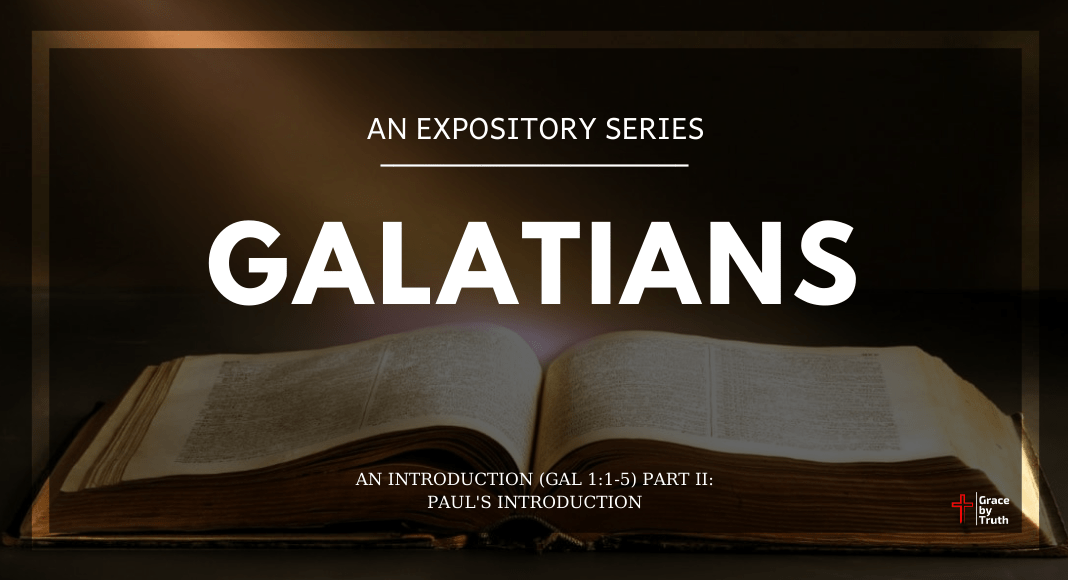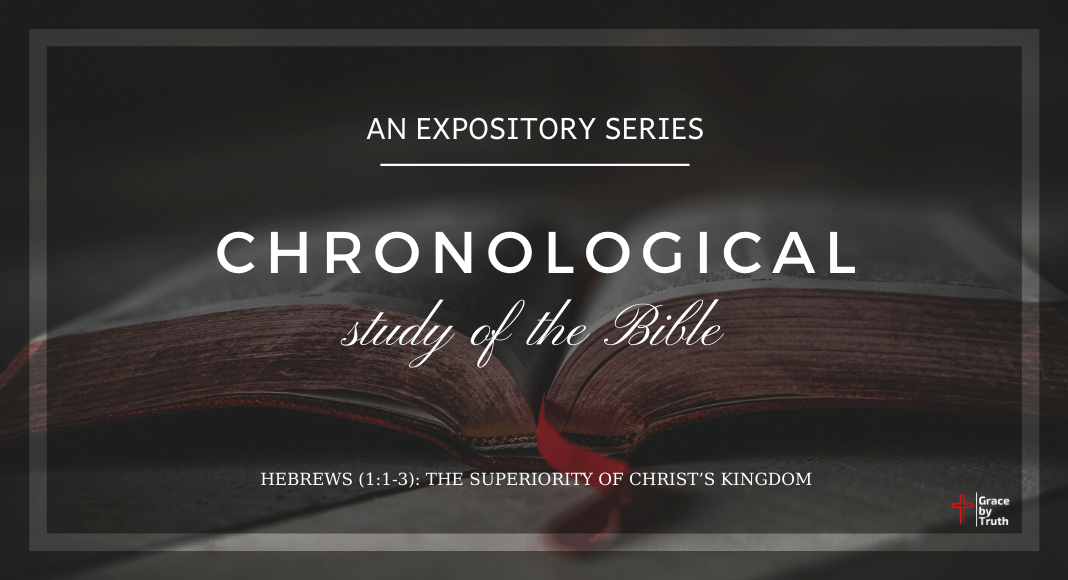Paul’s Introduction
Galatians 1:1-5
I. Paul reviews his authority (v.1)
A. Paul had been commissioned to be an Apostle. [Acts 9:15-16] (v.1a)
a. Qualifications to be an Apostle:
1. They were selected by Jesus to be His messengers in sharing the Gospel. (Mk. 3:14; Lk. 6:13; Acts 1:2, 24)
2. They were able to perform the signs of an apostle, being authenticated by miraculous signs and wonders. (2 Cor. 12:12; Matt. 10:1–2; Acts 1:5–8; 2:43; 4:33; 5:12; Heb. 2:3–4)
3. They had to have witnessed the resurrected Christ (Acts 1:21–25; 10:39–41; 1 Cor. 9:1; 15:7–8)
– “Paul saw his apostleship as unique and extraordinary (1 Cor. 15:8–9); it was not a normative pattern for later generations of Christians to emulate. An honest assessment of modern claims to the office demonstrates conclusively that there are no apostles today and have not been in church history since the first century.”
B. Paul’s message did not originate from man but God. (v.1b)
– “The resurrection signifies that the new age has dawned, in which God will fulfill all his saving promises to Israel and to the entire world…The Galatians were turning the clock back in salvation history by submitting to circumcision and the Mosaic law. Since Jesus has been raised from the dead, believers are no longer under the Mosaic covenant. Once again Paul anticipates one of the central themes of the letter (the fulfillment of God’s eschatological promises).”
– “The attack on Paul’s authority, therefore, was an attack on the gospel. In reply, Paul lifts his voice with passion, not simply to defend his apostolic calling but to preach the gospel again to his beloved Galatian converts. Liberation from legalism lies in seeing God’s grace not only as completely sufficient for salvation, but also as the wellspring for every facet of life.”
II. Paul recognizes his audience (v.2)
A. Paul’s audience was not one church but several churches in southern Galatia.
B. Paul does not greet these churches in his customary fashion.
– “The mention of these churches is brief and impersonal, and there is an apparent lack of the amenities usually found in Paul’s epistles. His resentment of their defection from the gospel of grace forced him to dispense with any commendation or personal remarks, and he simply gave a gospel greeting before he rebuked them.”
III. Paul reveals his aim (v.3-5)
A. Salvation is based upon God’s grace not works of the Law. (v.3)
a. Grace – charis
1. It means unmerited and undeserved favor.
2. We have been saved because of God’s favor.
3. Because of grace, believers now have peace with God (judicially and experientially).
b. Peace – eirēnē
1. To be in a state of harmony and well-being.
– “With the offer of salvation, each individual faces life or death. A person may choose to be rightly related to God or to face eternal judgment. Jesus gives opportunity to receive life, forgiveness, peace with God, and the presence of His Spirit. His death and resurrection have shown that He died for others and is ruling at God’s right hand, ready to distribute salvific benefits to those who come to Him.”
2. To be at spiritual peace regardless of one’s circumstances.
– “In the Bible, peace means far more than the absence of conflict or trouble. In fact, peace (eirēnē/shalom) is often ours in the midst of conflict and trouble. The peace God gives is independent of outward circumstances.”
B. Salvation results in Christ delivering believers from a world doomed to destruction. (v.4a)
– “Although they are not removed from the earth until they die or are raptured, believers are rescued out of this present evil age the moment they receive Jesus Christ as Lord and Savior. They are still in the world, but they are no longer of it (John 17:11, 14–18; Phil. 3:20–21; 1 John 5:5). The faithful Christian life is the heavenly life lived on earth.”
C. Salvation is according to God’s will. (v.4b)
– “God’s [decretive] will is his perfect determination and sovereign ordination of all things, pertaining both to himself (including his decrees and actions) and to his creation (including the events of history and the thoughts and actions of people), all unto the magnification of his utmost glory.”

D. The plan of Salvation brings God glory. (v.5)
– “Paul reminds us in Galatians that God’s saving work brings glory and praise and honor to God. As believers we need to be Christ-centered, God-focused, and Spirit-filled…We were made as human beings to enjoy and find awe in greatness, and nothing fills our hearts more than God himself. He is to be the sun, the moon, and the stars in our lives. May his praise fill our lives and spill over to others.”
Point to Ponder:
No one can be good enough to merit salvation. Faith alone in Christ alone is the only way to have your sins forgiven. This is why Paul preached the exclusive message of the Gospel of Jesus Christ.
ABOUT
Grace by Truth is known for delivering the precise and deep study of biblical truth in service to each other and the church.
CONTACT
CURRENT STUDY
MORE FROM GALATIANS
Galatians (6:11-18): What’s Most Important in Life
What’s Most Important in Life Galatians 6:11‐18 The most important thing in Paul’s life, and that he sought to share, was the saving Gospel of Christ. Salvation is by faith alone in Christ alone. I. It is pressing (v.11) A. Paul wrote to the churches...
Galatians (5:26-6:10): Helping Others Live the Spirit Filled Life
Helping Others Live the Spirit Filled Life Galatians 5:26‐6:10 I. Confront the erring Christian (v. 5:26‐ 6:1) A. Confronting a sinning Christian should be done with a view to spiritual restoration. a. Conditions for Confrontation: 1. One must be spiritual. -...
Galatians (5:13-25): Living the Spirit Filled Life
Living the Spirit Filled Life Galatians 5:13‐25 I. It involves charity (v.13‐15) A. Serve in love not the flesh. (v.13) - “Christ does not give freedom to believers so they can do what they want but so they can, for the first time, do what God wants, because of...







